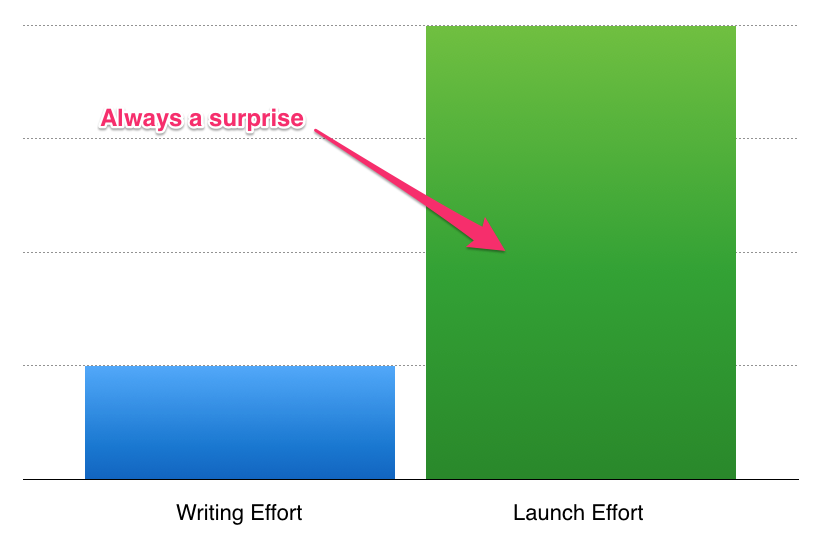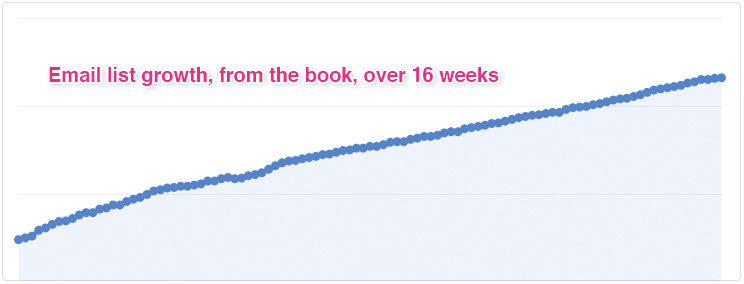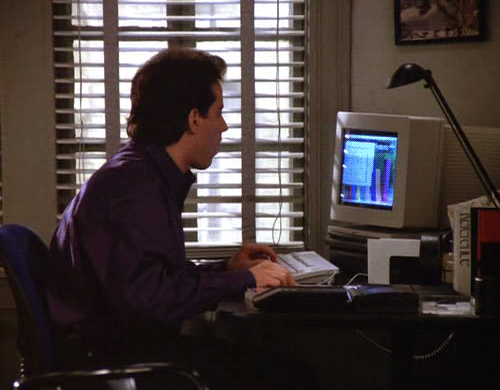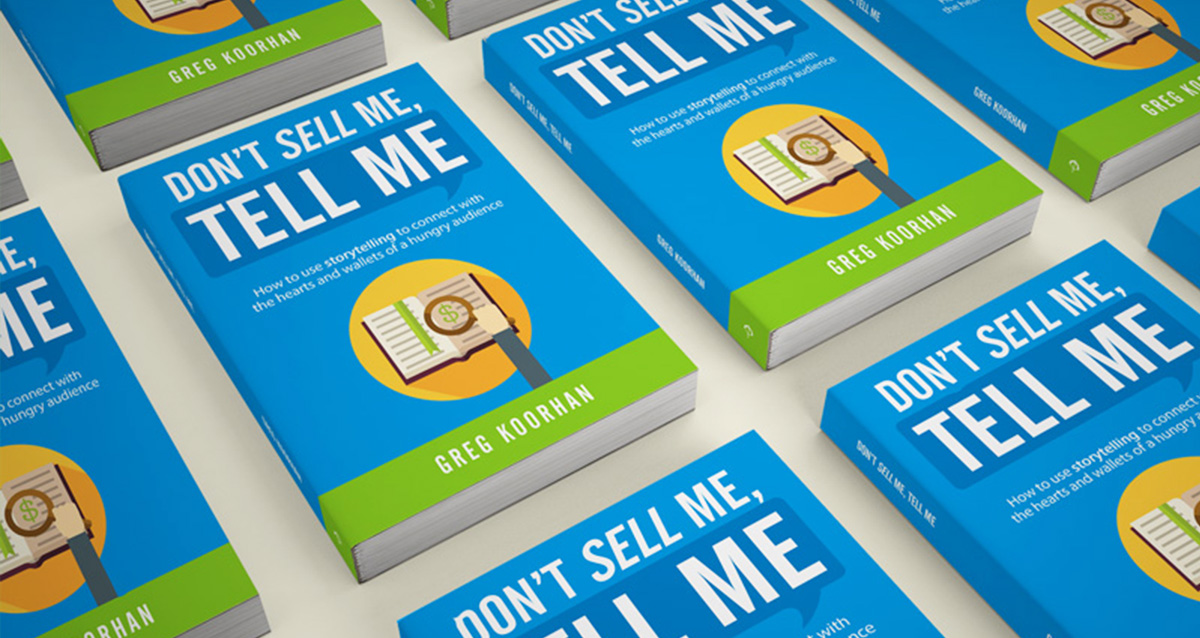My book, Don’t Sell Me, Tell Me: How to use storytelling to connect with the hearts and wallets of a hungry audience, just crossed 16 weeks 22 weeks as #1 Best Seller in its category. Looking back, it was not a smooth or direct path, and there were a lot of “lessons” learned.
I have a pretty severe inner critic, so at the beginning of this project I had many doubts and I would not have predicted the book would remain selling this well for this long.
So, in celebration, I decided to write down the sixteen most valuable takeaways I learned from this process and pass them on to you. Here they are, in no particular order.
Even if you are not a writer, I hope you find some of these insights helpful in making your next project a success.
1. Success is intentional
When you are adding a new goal to your life, you have to make room for it. You will never “squeeze in” more time at the end of the day, after all your other obligations have been met. It’s just too tiring, and too easy to blow off.
You have to schedule the time, every day, to meet your goals. Keep that time like a sacred appointment and don’t skip it.
This is not an easy habit to build, however.
I tried setting it in my calendar every afternoon. That was too easy to skip – earlier commitments would always take longer than expected and mess things up. I tried later in the evening, at lunch, nothing worked.
Finally, I set my alarm for 30 minutes earlier in the morning, and I wrote as soon as I woke up each morning.
Progress!
The more I stuck to it, the more productive that time became. I never would have completed the book had I not made the commitment to write at the same time every day.
2. Preparation is everything
One of the biggest lessons I learned was how much work goes into preparing for the launch of a book.

You can’t just spring it on the world and expect sales to take off. You need to put the word out early to get a “launch team” or “street team” ready – a group of supporters to give your initial launch a boost – so you are not the only one promoting when your book goes on sale.
They’ll also provide the “social proof” in the form of reviews.
I spent a lot of time before and during launch week, building relationships and keeping that initial group up to date on the book and motivated to help. If you were on my email list at that time, you know what I mean and, ahem, I apologize for the volume… 😉
3. Hitting bestseller status takes persistence
After launch, one of the biggest factors impacting your Amazon ranking is closely tied to the number and quality of reviews you get. I had added a resource section in the book, so every time a reader downloaded the resources I first followed up to see if they got their bonus material successfully. Then I followed up a few days later with a request for them to leave a review.
Not everyone responds or posts a review, but I know I wouldn’t get any if I didn’t ask!
4. Keep throwing fuel on the fire
Once a month I’d do some minor promotion to increase the likelihood of someone finding the book. I tried a few book promotion sites, but never spent more than $40 bucks at a time. Mostly, I’d hire someone on Fiverr to write and post a keyword-filled article, create a few backlinks or post on social media channels I didn’t have access to.
Relatively small efforts that “stirred the pot” and added up to keep new traffic flowing.
5. I’m not going to retire on this
Don't get me wrong, having income from the book is great. But I actually consider anything I receive in royalties as a bonus. It’s never going to be the kind of revenue that will allow me to give up my day job. (At least not from one book…)
What's more valuable than the book royalties, however, are the email addresses I get from the downloadable resources included in the book. I now have a steady source of growth for my list like I've never had before. And better yet, people are technically paying to be on it. How cool is that?

6. Goals are not as important as progress
Setting goals is smart, because nothing happens unless you focus on it. I had set a goal to write and publish this book in 90 days. I had it all planned out, the number of words per day, etc.
Guess what? I missed my estimates. Almost every single one.
It took me five months to launch the book, not three. But who cares? I still have a published book when, at the start of this year, one didn’t exist.
What I really got out of this exercise is 1) the confidence that it can be done and 2) the habit of sticking to it. By sticking to the schedule and making daily progress – no matter how little – I developed a valuable new habit and for that I'm grateful.
Because it’s really the tiny, everyday daily habits that determine the fate of our long term successes.
7. Don’t self edit your own work
You've probably been told not to go back and edit your work during writing and to just get your first draft down on the page.
Going back and self editing during the first draft is a formula for procrastination – a temptation I flirted with all the time, by the way. It fools you into thinking you are getting closer to your goal, but you are really just spinning in place. You’ll never finish that way.
So don’t do that.
But I also recommend getting a professional editor after the first draft is finished. Only a second set of eyes can tell you if you’ve communicated clearly and concisely, or if you need to change or rearrange structure to get your point across. You could be fooling yourself there, too.
Then after that, have a professional copy editor look for grammar and typos. That may or may not be a different person from the first editor, but it definitely should not be you. It’s too easy to miss things when you’ve been staring at it for as long as you probably have been.
8. People do judge a book by its cover
The title of your book and its cover are two of the biggest factors that determine the sales of your book. I agonized over the title and subtitle of my book for a ridiculously long period of time.
I would've been better off had I, instead, reached out to my launch team or my potential audience and tested several titles and subtitles. I would've got a quicker and more accurate response and known more about whether the book was going to sell or not, instead of waiting until it was too late to find out.
9. There is no need to reinvent the wheel
Self publishing a book and marketing that book has been done, very well, many times over. Find a mentor and follow their process. I highly recommend Self-Publishing School. SPS has the process down.
There’s no need for you to waste time figuring out what is already been figured out. Put your creativity into your work, not re-developing the process.
10. Done is better than none
I’m embarrassed to say I have plenty of goals I haven’t reached and projects I haven’t finished. So when I started this book it became really important for me to complete this project.
If, for no other reason, to prove I could.
Maybe you have a book inside of you that you’ve toyed with the idea of writing. If so, sit down and see it through to finish.
Maybe you have multiple unfinished projects piled up, like I did. In that case, just pick one and see that through to finish.
Because rest assured, the feeling you get when finishing your book, no matter how imperfect, is far better than the regret you’ll have from letting another year pass without writing it.
[easy-tweet tweet=”Done is better than none.” hashtags=”#author #amwriting” template=”blue”]
11. Sharing your journey makes it easier
I would not have been able to get through the writing process if I did not have an accountability partner or a coach. Find someone you respect and can touch base with once a week, and report on progress.
They can provide guidance when you have a question, inspiration when you are stuck, and most of all, the psychological ‘guilt’ of not doing what you said you’d do the previous week is a fierce motivator!
Plus, when you're staring at a blank page it's a nice feeling knowing that there is someone else on your team, rooting for you.
12. Just keep swimming
As I mentioned at the beginning, it’s not a straight path. Some days, it will seem like you're not making much progress. Or there'll be days that you miss your scheduled appointment to write or you sit down to write but don't write your 500-1,000 words that day.
And that's okay. Just pick up the next day where you left off – don't beat yourself up about it. Just make progress the next day.
As Dory from Finding Nemo so aptly said, “Just keep swimming, just keep swimming.”
13. Get addicted to writing, not watching the stats
I found myself clicking refresh, over and over again, fixated on watching the Amazon rankings. It's satisfying in the moment, but just like scrolling through social media or eating a ton of chocolate you don't feel that great at the end.

It's okay to check your analytics once a day. But a better use of the rest of the time would be to spend it on something more productive, like writing the next book!
Or at least move on to tackle some marketing activities, like reaching out for more reviews, contacting media outlets or uncovering untapped audiences.
14. Action conquers fear
There are so many moving parts to writing and launching a book, it’s easy to muddle them together and get overwhelmed. I found myself several times looking at my list of tasks and feeling stuck because I didn’t know exactly how to do one piece.
But every time, without fail, if I just pushed through and did something – anything – on the list, even if I didn’t know exactly how to accomplish everything related to it, things started to fall in line and what to do next became clear.
In hindsight, it was simply a fear of making a mistake. And taking action is the perfect remedy.
15. Your story matters
They'll be times when you doubt that you can complete your project. Times when you feel you have nothing valuable to say.
I speak from experience here.
Don’t let those doubts stop you. Since my book has been out I've been amazed by the overwhelmingly positive responses from all over the world.
I've received emails from people I’ve never met in the UK, Australia, from across the U.S. and even in a neighboring town. It’s seriously humbling. It drives home the point that your story can mean something to somebody even if you've never met them before.
Your story matters. People are out there waiting to hear from you. Don’t keep them waiting any longer.
16. There is always more to learn
I’ve been in marketing for 30-plus years and these last few months still taught me a ton. Most of the time, the lessons learned were hard ones, and the obstacles to overcome were internal.
I will, of course, do my best to take all that I’ve been learning and apply it in creating my next book, or my next project. And hopefully smooth the process a little.
But if anything, these last 16 weeks, (and the 5 months before that, if you count the pre-launch and writing time) pointed out that no matter how much I thought I knew, there is and will always be room to improve and grow.
For me, that’s exciting. I’m a serial learner. I had (have) to be careful, though, because it's easy to use that trait as a “reason” not to move forward. You know, until I learned everything I needed to know. (See #14 for how I got past those times).
If any of this sounds like what you are going through, and you want a little help figuring out the fastest way to reach your goals – including mapping out the most important next steps – hit me up over here and we can schedule a call.

